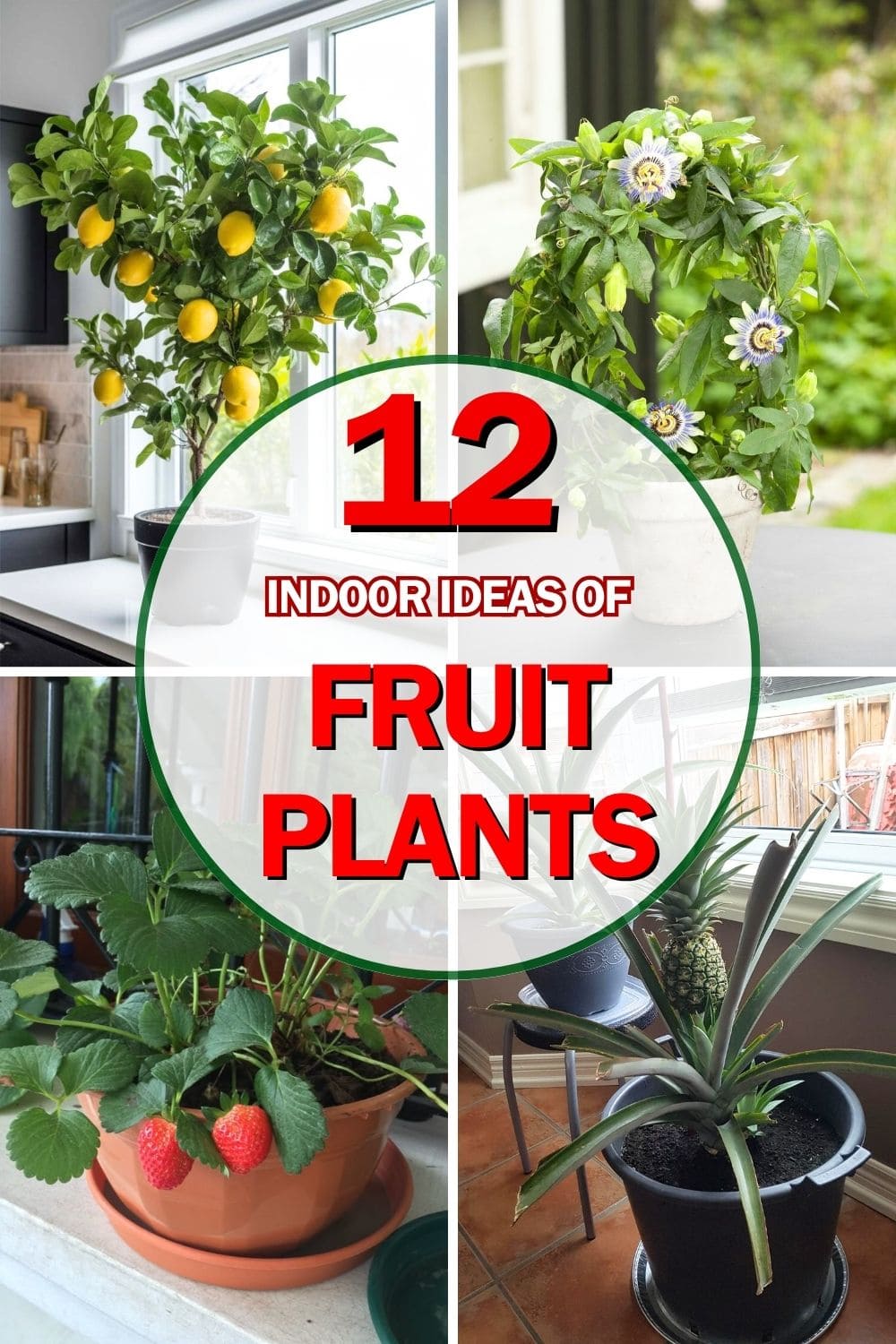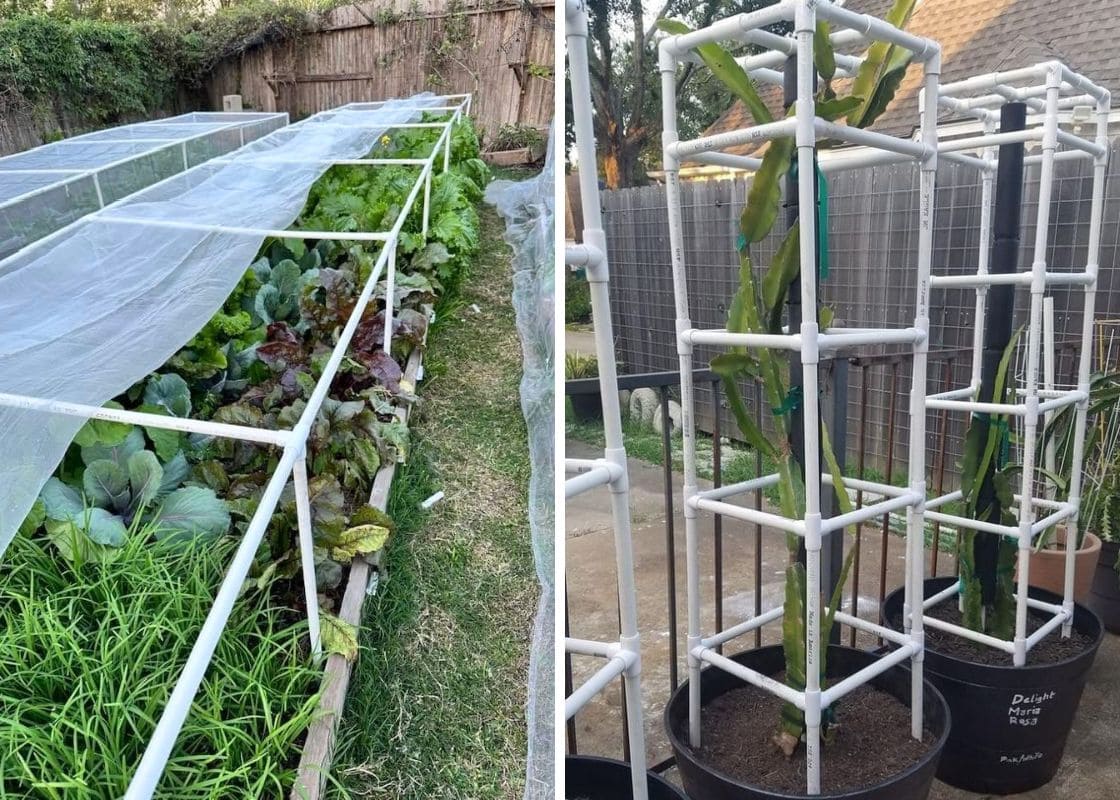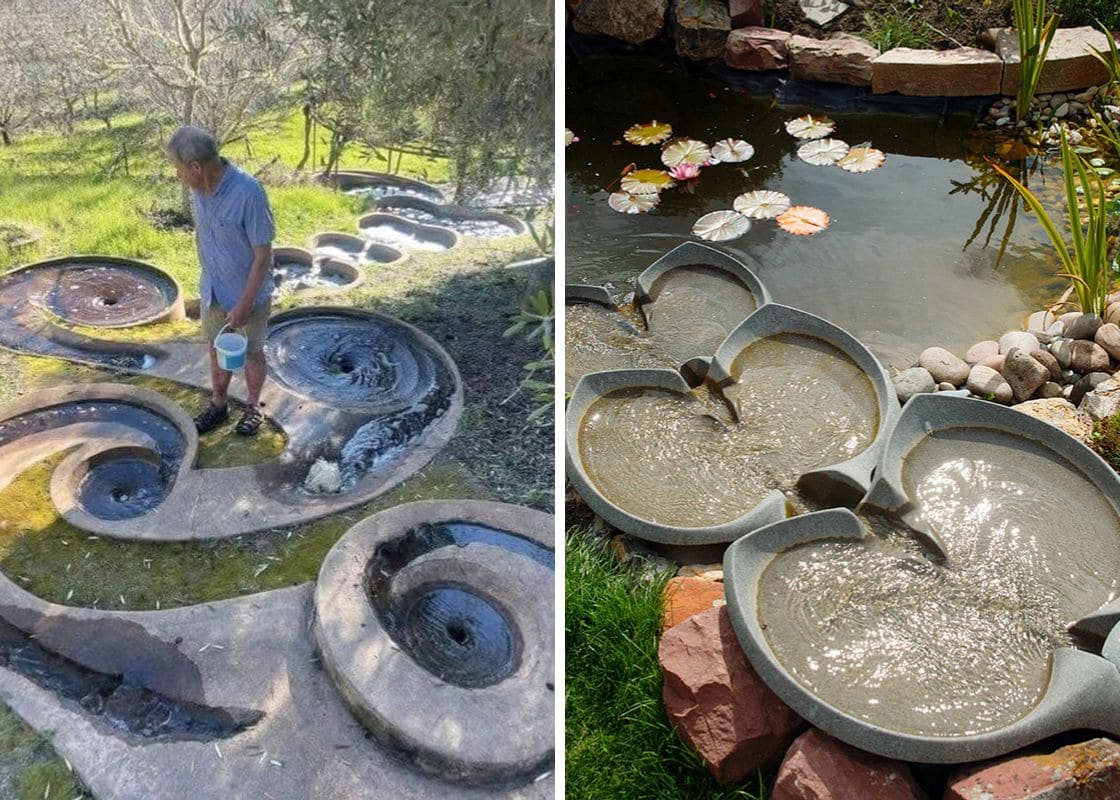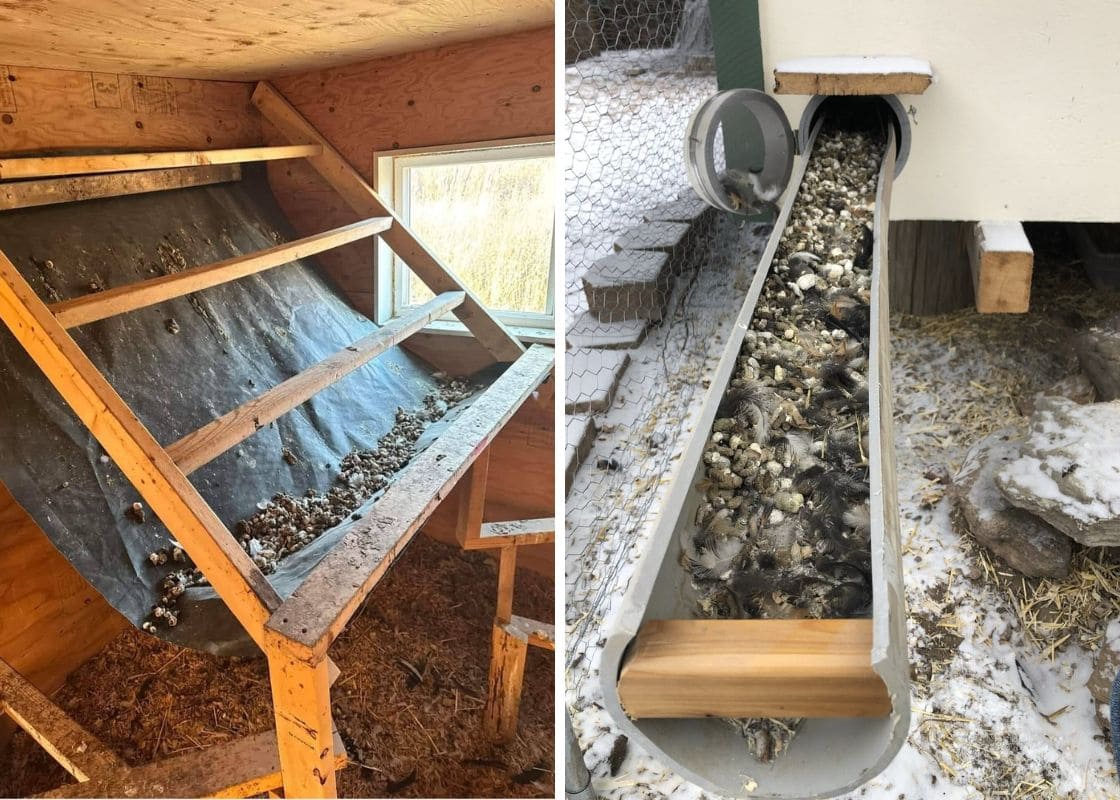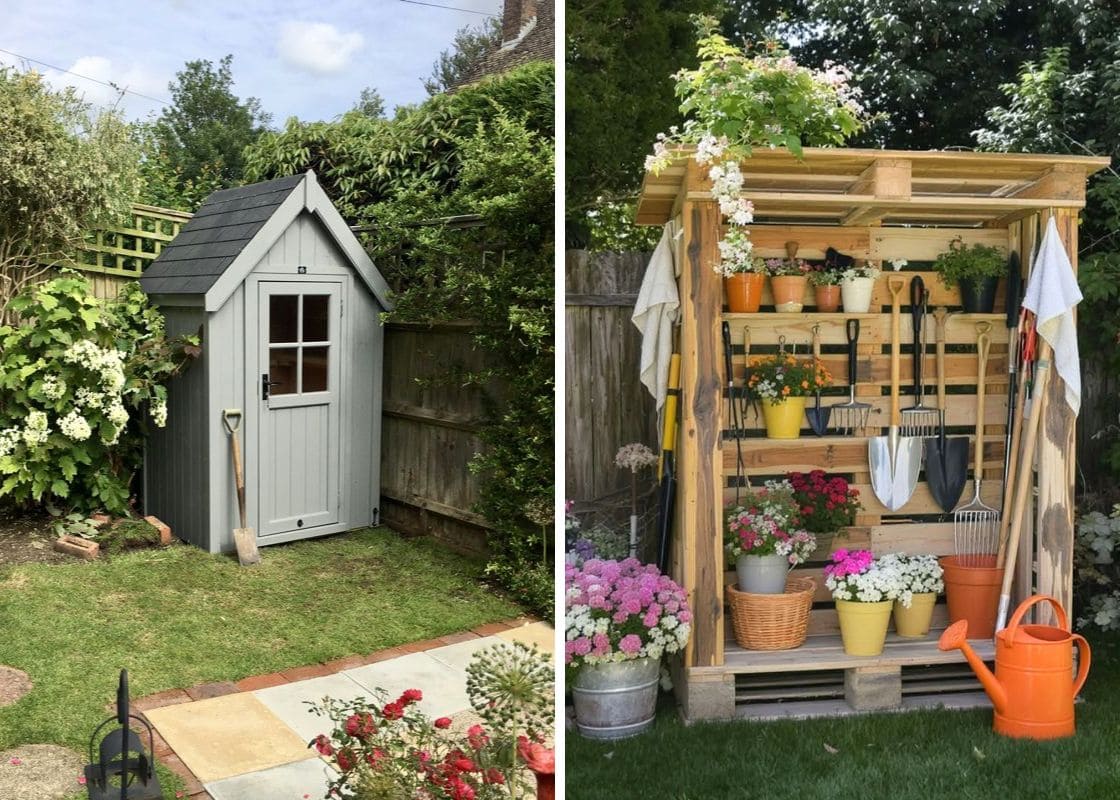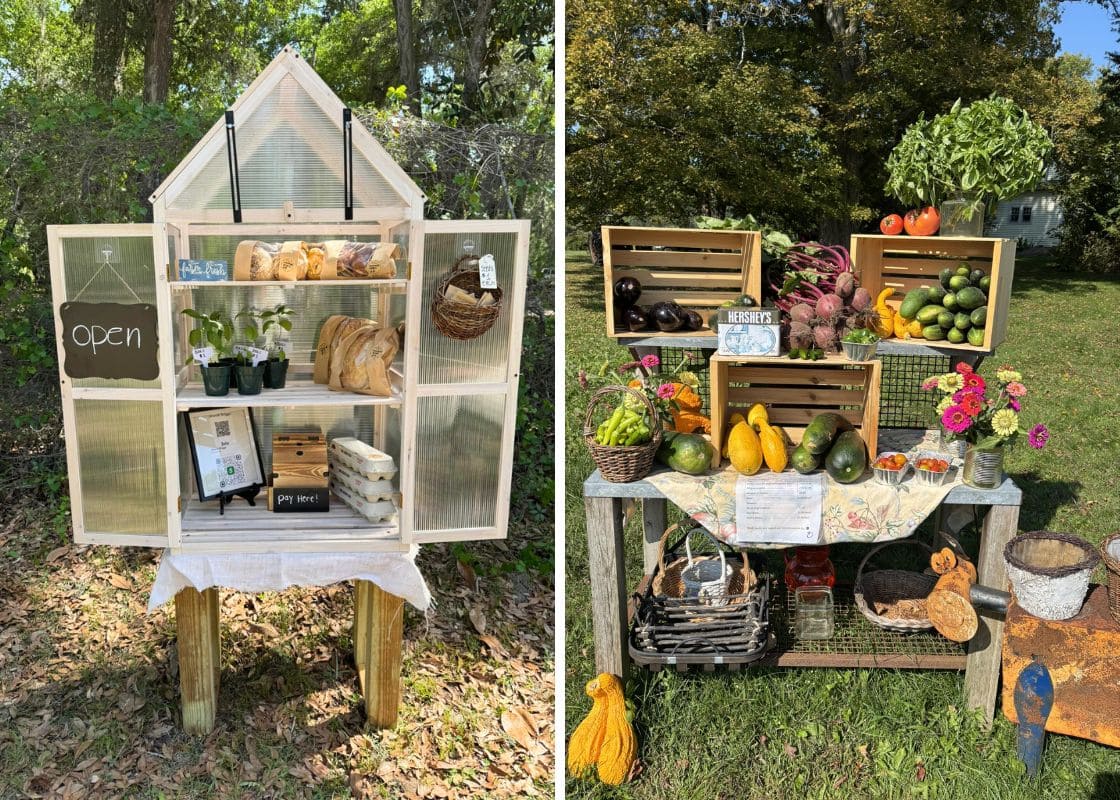Who says you need a backyard to grow your own fruit? These days, more and more plant lovers are turning their homes into mini orchards right on windowsills, kitchen counters, or cozy sunlit corners.
And honestly? There’s something deeply satisfying about watching a tiny lime or fig take shape under your care.
Maybe it’s the soft scent of citrus wafting through your living room. Maybe it’s the thrill of picking a fresh berry before breakfast.
Whatever the reason, growing fruit indoors isn’t just possible, it’s surprisingly doable and incredibly rewarding. Let’s explore the best indoor fruit varieties that can bring a little sweetness into your everyday life.
1. Meyer Lemon Tree
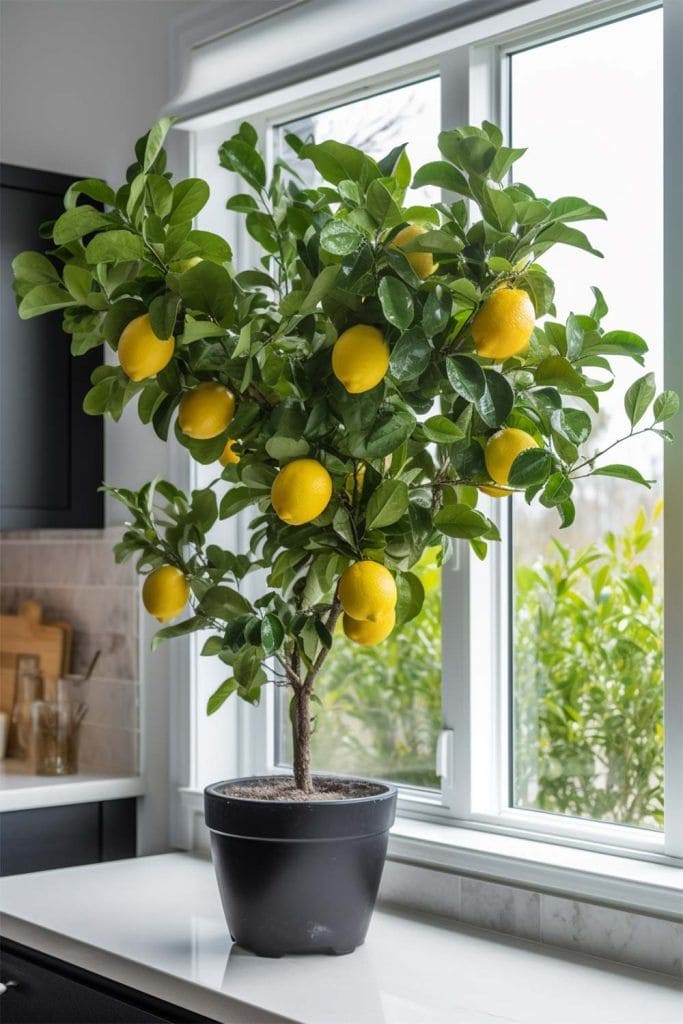
- Botanical name: Citrus × meyeri
- Time to fruit: 2-3 years from planting
- USDA zones: 9-11 (indoors anywhere)
This compact citrus tree has stolen the hearts of home gardeners for good reason. Meyer lemons are sweeter, less acidic, and more fragrant than standard lemons.
Indoors, it thrives in a large pot (at least 10-15 gallons) with excellent drainage. You should give it a bright sunny spot, a south-facing window is best and rotate it every few weeks for even growth. Also, water when the top 2 inches of soil feel dry, and feed with citrus fertilizer during growing season.
Meyer lemons are self-pollinating, but a little hand-pollination with a soft brush can boost yields. Watch for sticky leaves, that’s a sign of pests like scale or aphids.
Specially, here’s your news, the fruit’s thin skin makes it hard to ship, which is why store-bought Meyer lemons never taste as vibrant as your homegrown ones.
2. Calamondin Orange
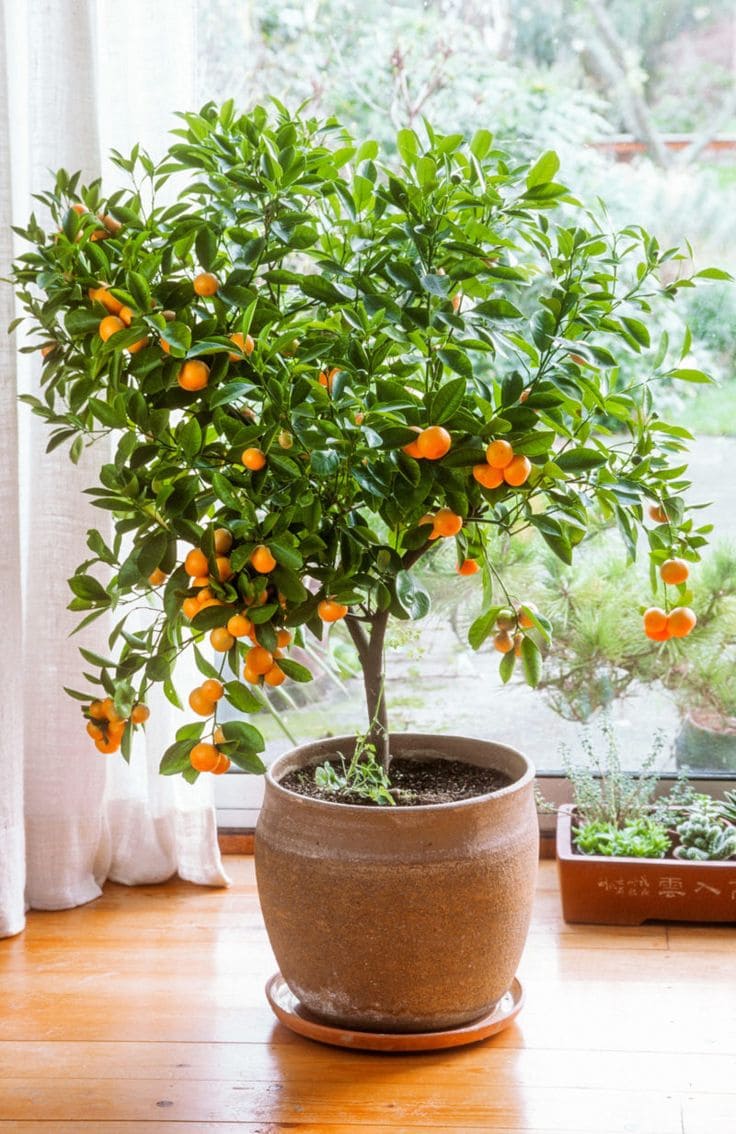
- Botanical name: Citrus × microcarpa
- Time to fruit: 1-2 years
- USDA zones: 9-11 (grow indoors elsewhere)
These tiny oranges aren’t just ornamental, they pack a tangy punch perfect for marmalades, marinades, and cocktails. Calamondin trees are compact, bushy, and flower profusely indoors with the right care.
They enjoy warm, bright spaces like direct sun for at least 6–8 hours a day and regular watering. A deep container (12-16 inches) also supports root development and encourages flowering. The leaves are glossy, and the blooms are heavenly scented.
Since the fruit can stay on the tree for weeks, it offers long-lasting color indoors. You can use well-draining citrus mix, and fertilize monthly during spring and summer. Be patient as sudden leaf drop can happen if light or humidity dips too low.
3. Dwarf Banana Plant
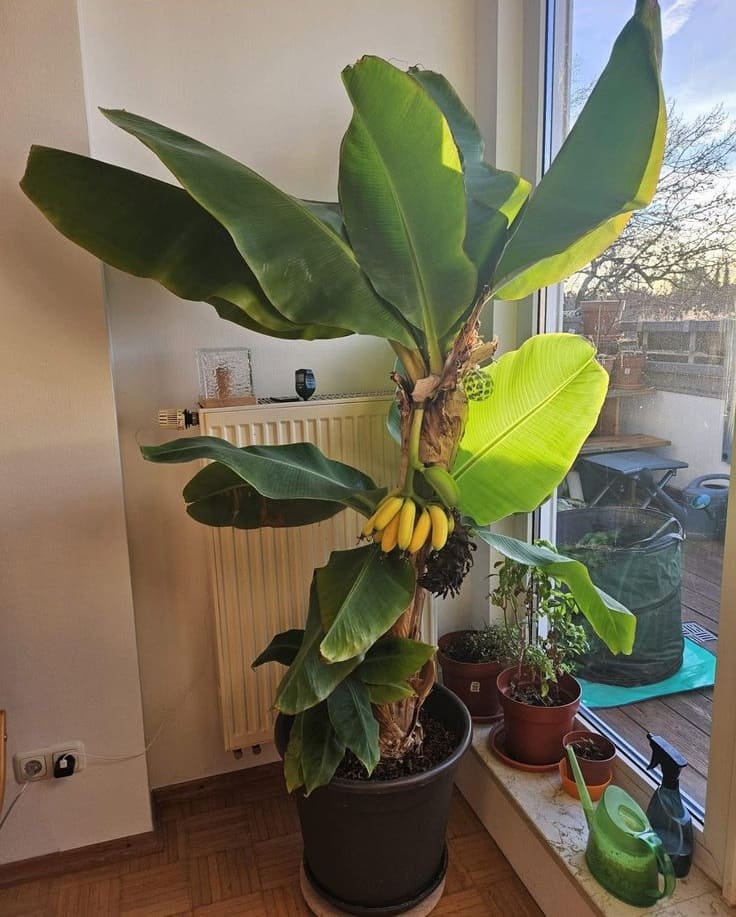
- Botanical name: Musa acuminata ‘Super Dwarf Cavendish’
- Time to fruit: 1-2 years
- USDA zones: 9-11 (indoors in cooler zones)
Dwarf banana plants bring tropical flair with lush, oversized leaves and under the right conditions, yes, even bananas. Indoors, they need bright, indirect light or supplemental grow lighting, and warmth above 70°F.
A 12-20 inch pot allows for healthy root growth, and the soil should be consistently moist but never soggy. High humidity is a must, so misting or a humidifier helps.
Bananas are heavy feeder, so you should fertilize often with balanced or banana-specific feed. Fruiting can take time, but the plant itself is stunning. You also keep it away from drafts and cold windows in winter.
4. Fig Tree (‘Petite Negra’ or ‘Little Miss Figgy’)
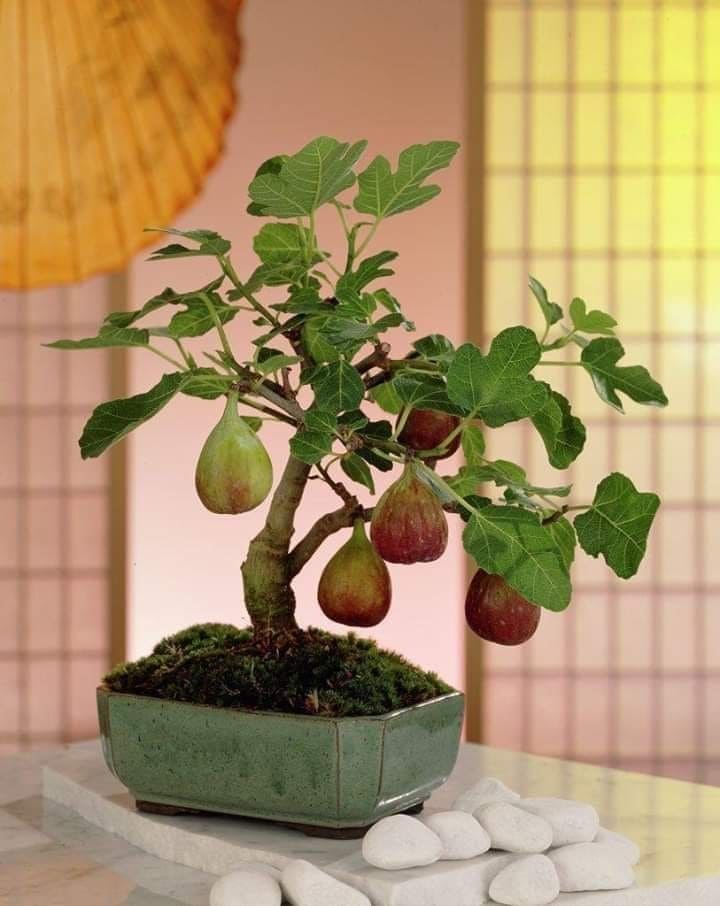
- Botanical name: Ficus carica
- Time to fruit: 1-2 years from sapling
- USDA zones: 7-10 outdoors, but grows indoors in any zone
Indoor fig trees like ‘Petite Negra’ or ‘Little Miss Figgy’ are ideal for small spaces. They reach just 3–4 feet in height but still produce rich, purple fruits with a jammy, honey-sweet center.
These trees love warmth and sunlight, so you aim for at least 6 hours of direct light daily near a sunny window.
You also choose a deep pot about 12–16 inches wide with good drainage. And let the soil dry slightly between waterings to avoid root rot. Pruning is simple, you just trim leggy growth and keep the shape compact.
Unlike their larger cousins, these dwarf figs are self-fertile and reliable producers even indoors. They’ll often go semi-dormant in winter, dropping some leaves, so don’t panic, just cut back a little on watering and wait for the spring bounce.
5. Dwarf Pomegranate
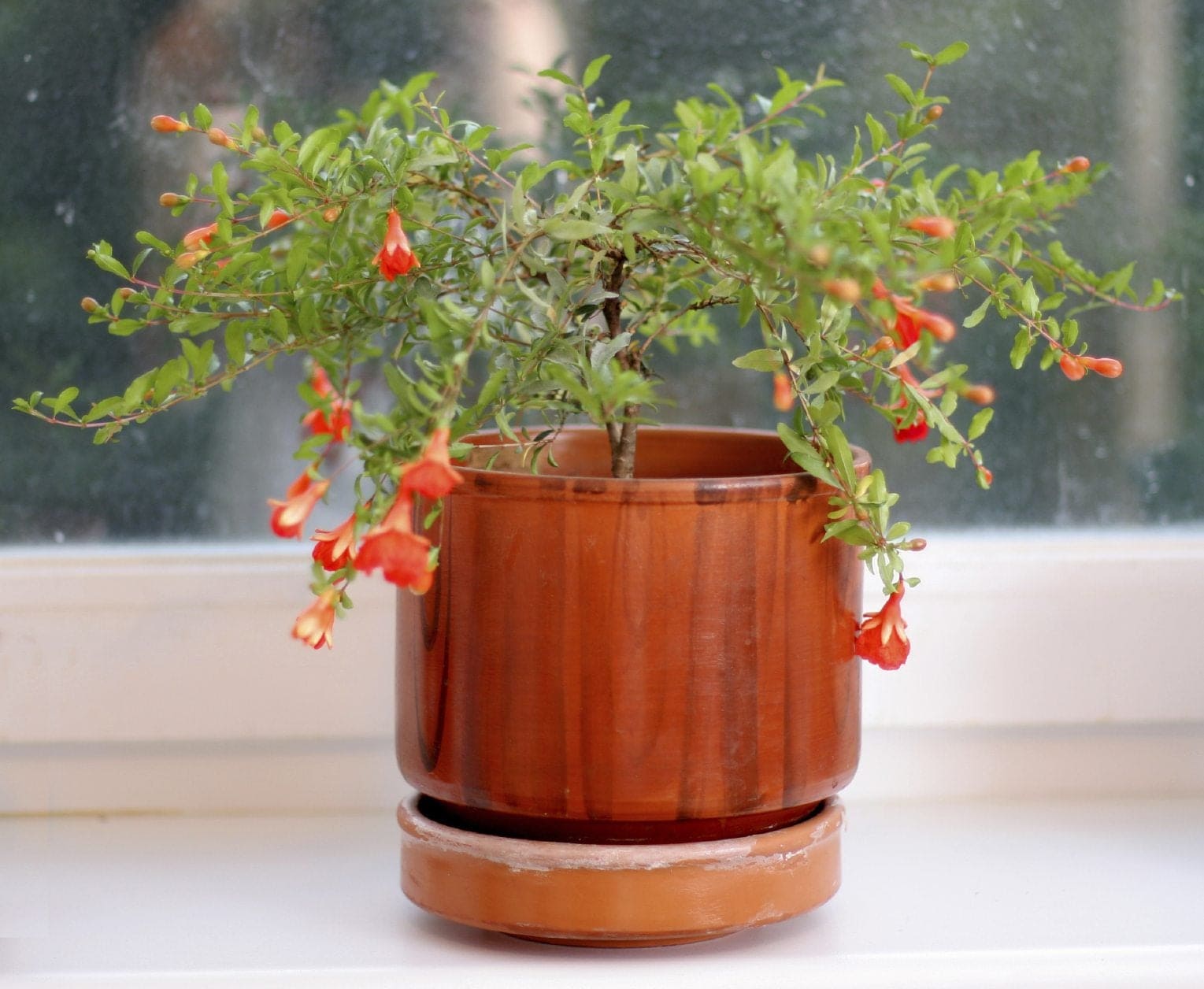
- Botanical name: Punica granatum ‘Nana’
- Time to fruit: 1-2 years
- USDA zones: 7-11 outdoors, indoors anywhere
The dwarf pomegranate is a striking houseplant with fiery orange flowers that eventually give way to small, edible fruits. Though they’re tart and smaller than commercial poms, they’re perfect for garnishes and juicing.
Indoors, this plant needs strong, direct sunlight and good airflow. A 10-12 inch clay pot works well to keep roots slightly restricted and encourage flowering.
You should use well-draining cactus or citrus soil mix, then allow the topsoil to dry before watering again.
While self-pollinating, you can help the process along with a soft brush. Also, fertilize monthly in the growing season with a high-potassium fertilizer.
Pomegranates can tolerate dry indoor air but love time outdoors during warm months.
6. Pineapple Plant
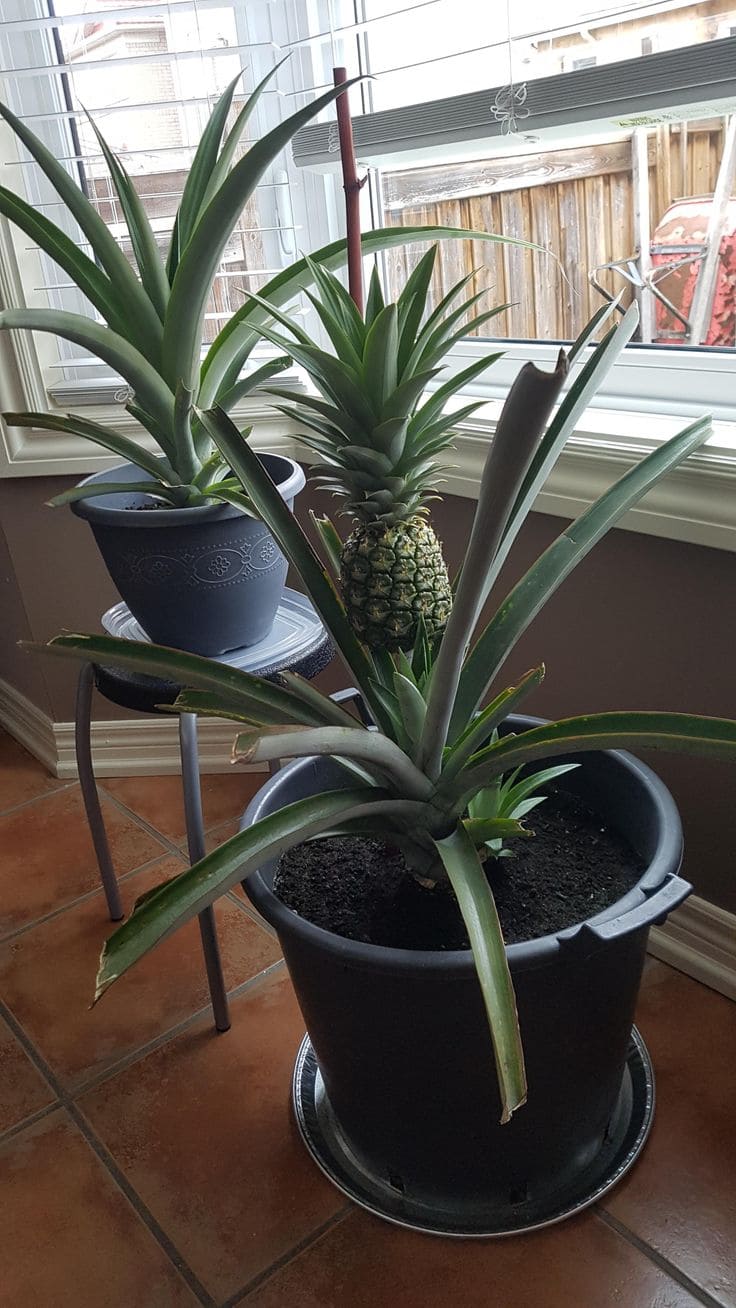
- Botanical name: Ananas comosus
- Time to fruit: 18-24 months
- USDA zones: 9-11 outdoors, grown indoors anywhere
Yes, you can grow a pineapple in a pot and it makes a surprisingly easy indoor fruit plant. Pineapples grow from the center of a spiky rosette and take about two years to mature into a fruit-bearing beauty.
They need warmth, sunshine, and a pot that allows the roots to spread so 12-14 inches across is ideal. You want to use a sandy, well-draining soil mix and don’t overwater; once a week is often enough indoors.
They’re fairly drought tolerant and love high humidity. Pineapple plants don’t require pollination and are usually pest-resistant. You just place them somewhere bright and cozy.
Specially, you can start a plant by twisting off the crown from a store-bought pineapple, drying it for a few days, and planting it directly into soil.
7. Strawberries (Day-Neutral or Alpine Varieties)
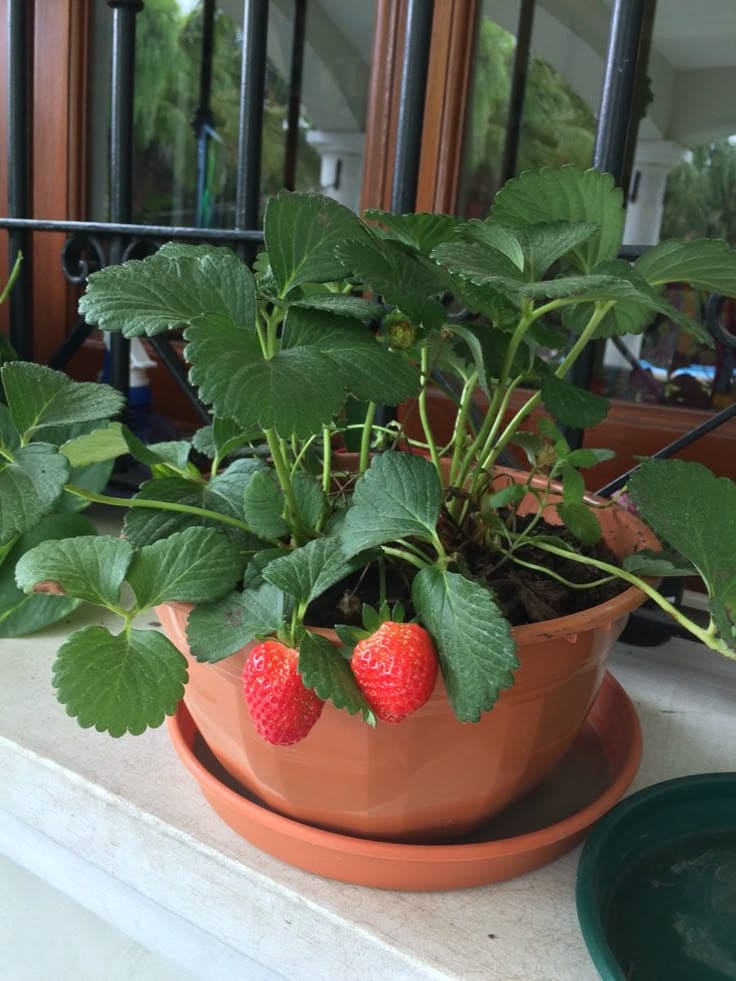
- Botanical name: Fragaria vesca (Alpine), Fragaria × ananassa
- Time to fruit: 4-6 months
- USDA zones: 4-9 outdoors, indoors year-round with care
The best varieties for container growing inside are day-neutral types like ‘Seascape’ or Alpine strawberries. Their compact size makes them perfect for hanging baskets, window boxes, or small pots.
You should place them in a bright, sunny spot with 6-8 hours of sunlight or grow light daily keeps them productive. You also keep soil moist but not soggy, and snip runners to focus energy on berries.
You harvest as soon as they redden fully, and expect small but intensely sweet fruits every few weeks. Specially, you can try planting a few in a strawberry tower for a fun decorative touch.
8. Goji Berry
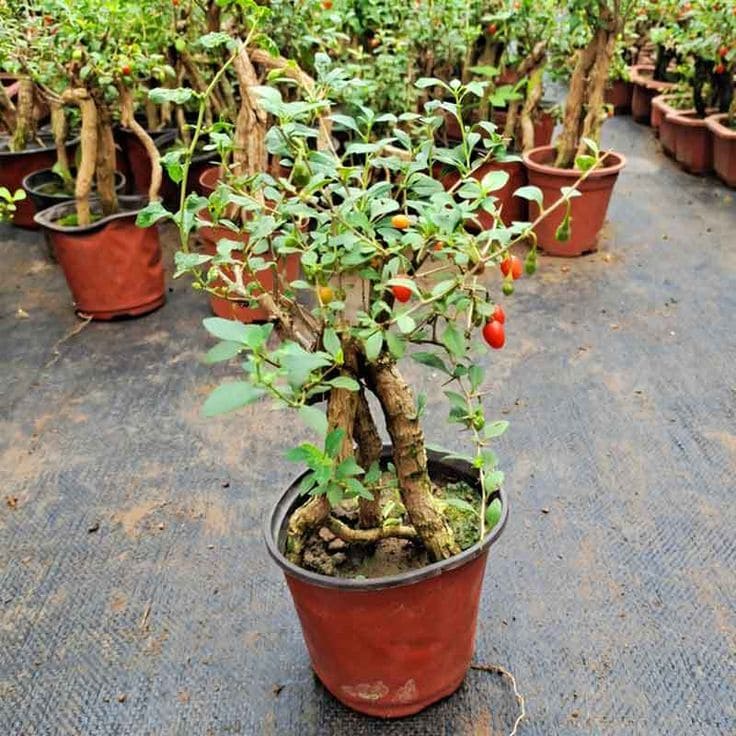
- Botanical name: Lycium barbarum
- Time to fruit: 1-2 years
- USDA zones: 5-9 outdoors, container-friendly indoors
Goji berries, the antioxidant-rich superfood, can actually thrive in pots indoors. These bushy, vining plants aren’t just nutritious, they’re also surprisingly easy to care for in a sunny room.
Goji berries want full sun and a roomy pot, at least 12-14 inches deep. They grow upright but can be trained on a small trellis or pruned into a compact shape. You need to water regularly but allow the soil to dry between waterings to avoid root issues.
The berries are bright red-orange with a sweet-tart taste and can be eaten fresh or dried. Goji plants drop their leaves in winter and bounce back quickly in spring.
9. Passion Fruit (Dwarf or Indoor Varieties)
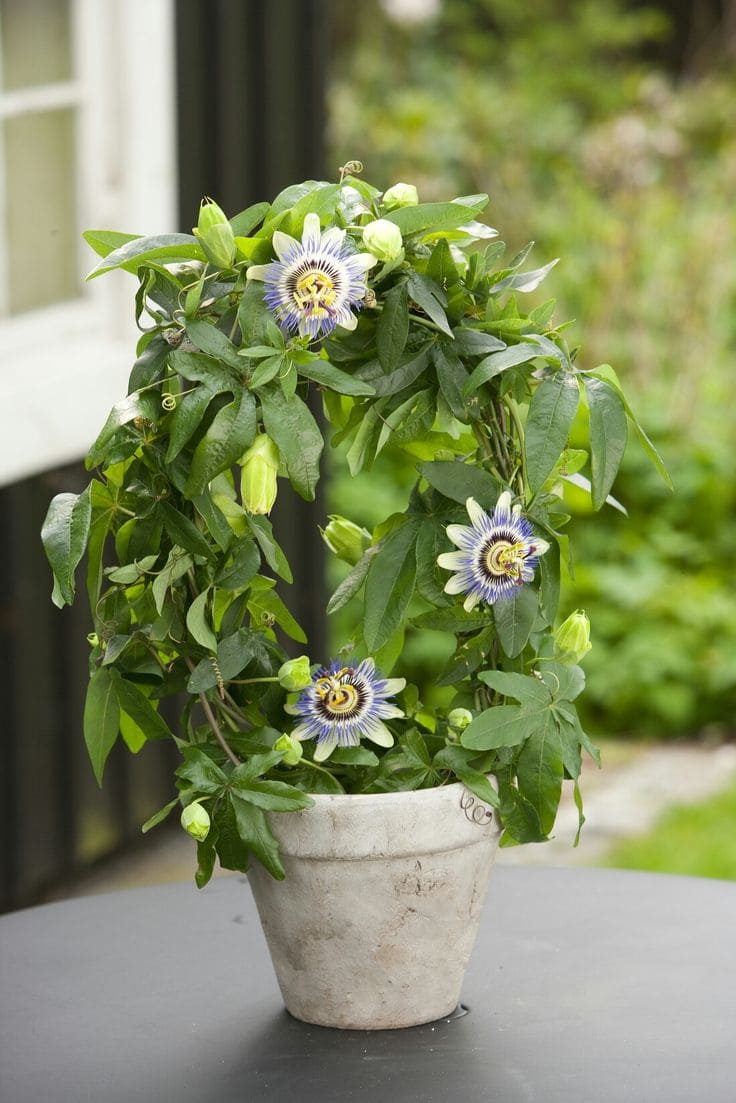
- Botanical name: Passiflora edulis
- Time to fruit: 1-2 years
- USDA zones: 9-11 outdoors, indoors with support
Passion fruit vining indoors sounds wild, but with the right care, it works, especially if you choose dwarf varieties. These vines love to climb, so give them a trellis or frame near a sunny window.
The flowers are otherworldly like purple, white, and truly hypnotic and the fruit that follows is sweet-tart and fragrant. You should use a deep 14-18 inch pot with well-draining potting mix.
Besides, water deeply, but only when the soil feels dry halfway down. Hand-pollination may be needed indoors, but it’s easy with a soft brush.
The vine can get a bit unruly, so pruning is your friend. Bonus, these plants do better with high humidity, so group them with other plants or use a pebble tray.
10. Dwarf Avocado Tree
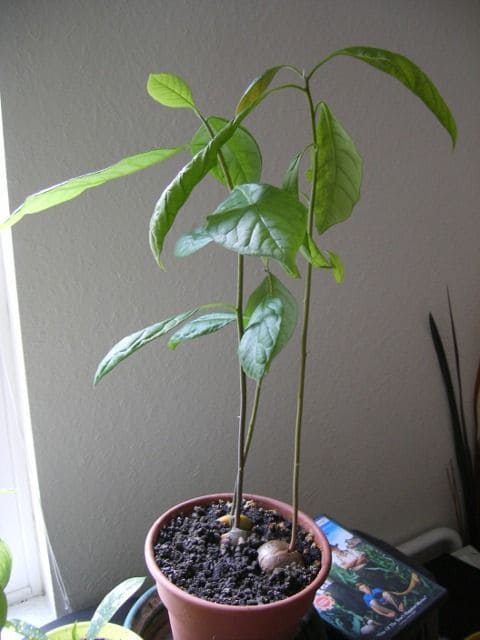
- Botanical name: Persea americana
- Time to fruit: 2-3 years (from grafted dwarf tree)
- USDA zones: 9-11 outdoors, container-grown indoors with warmth
While growing avocados from a pit is a fun science project, getting fruit indoors takes a grafted dwarf variety like ‘Wurtz’ (aka “Little Cado”). These compact trees can grow in 15-18 inch pots with proper drainage and love a warm, sunny location.
Indoor avocados prefer slightly acidic soil and need consistent watering. So, give them 6-8 hours of sun or supplement with grow lights.
Pruning is also key to keeping them bushy and manageable. They’re self-fertile but produce better when hand-pollinated. Note that these trees are sensitive to cold drafts and sudden changes in temperature.
11. Cape Gooseberry (Ground Cherry)
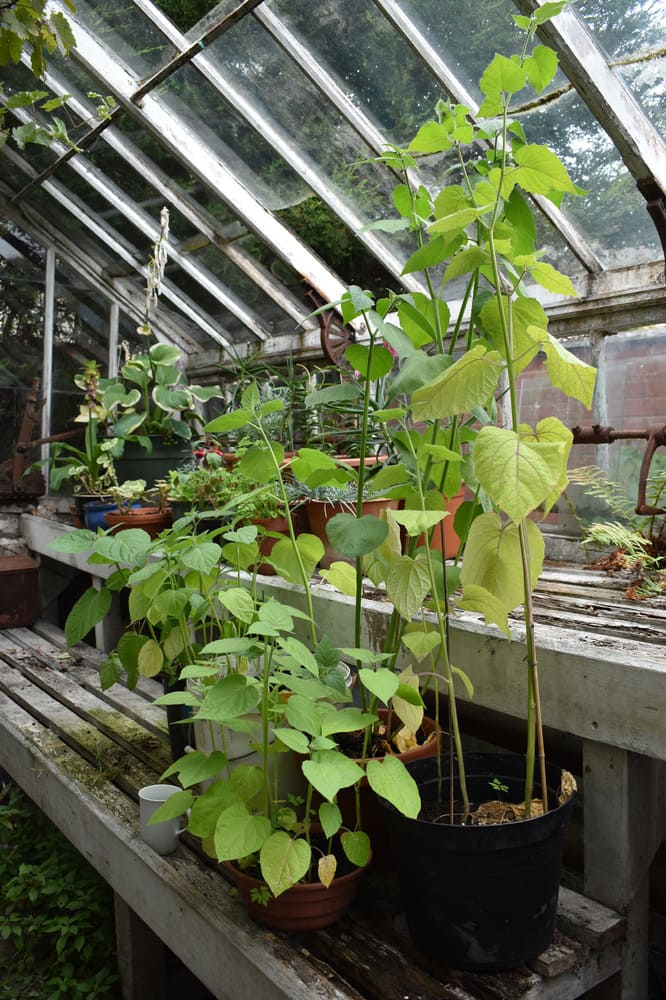
- Botanical name: Physalis peruviana
- Time to fruit: 4-6 months from seed
- USDA zones: 8-11 outdoors, anywhere indoors
Cape gooseberries, also called goldenberries or ground cherries, are a delightfully tangy fruit wrapped in papery husks.
The plant is compact, bushy, and easy to grow indoors in a 10-12 inch pot. It thrives in warm, sunny conditions with 6+ hours of light daily. You also should water regularly but let the topsoil dry out slightly between drinks.
These plants don’t mind dry air but appreciate good airflow. The fruits fall when ripe, and you’ll find them hiding under their husks like tiny golden treasures.
Specially, cape gooseberries are prolific producers, just one or two plants can keep you snacking all season.
12. Tamarillo (Tree Tomato)
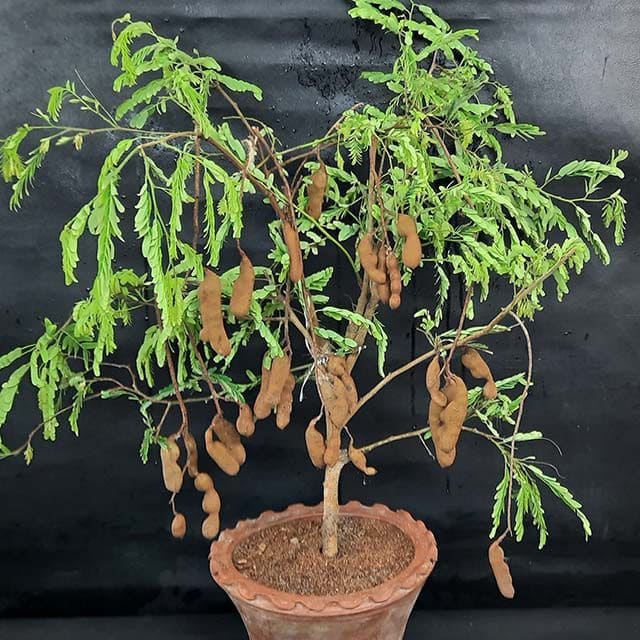
- Botanical name: Solanum betaceum
- Time to fruit: 18-24 months
- USDA zones: 9-11 outdoors, grows well in containers indoors
Tamarillo, or tree tomato, is an exotic, fast-growing small tree that adapts beautifully to indoor container life if given the right conditions. It produces striking egg-shaped fruits that taste like a mix between tomato and passionfruit.
A 14-18 inch deep pot is ideal. This plant thrives in bright, indirect light and prefers cooler night temperatures for fruit set. You need to keep the soil evenly moist and feed it monthly during the growing season.
However, tamarillos don’t like being root-bound, so consider repotting every 12-18 months.
